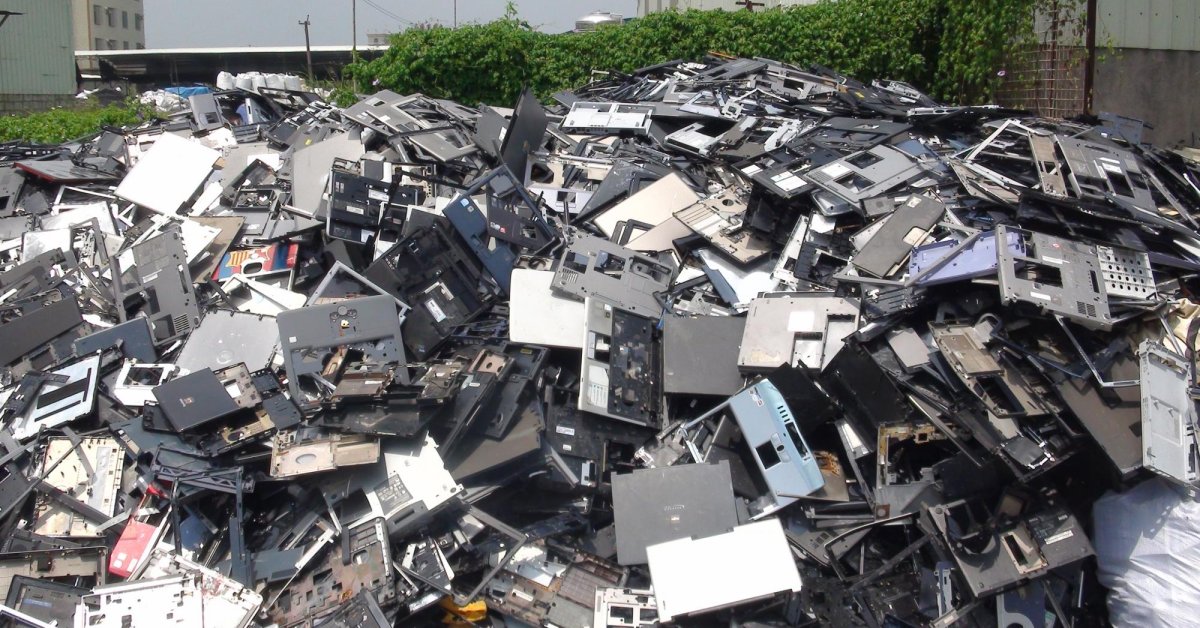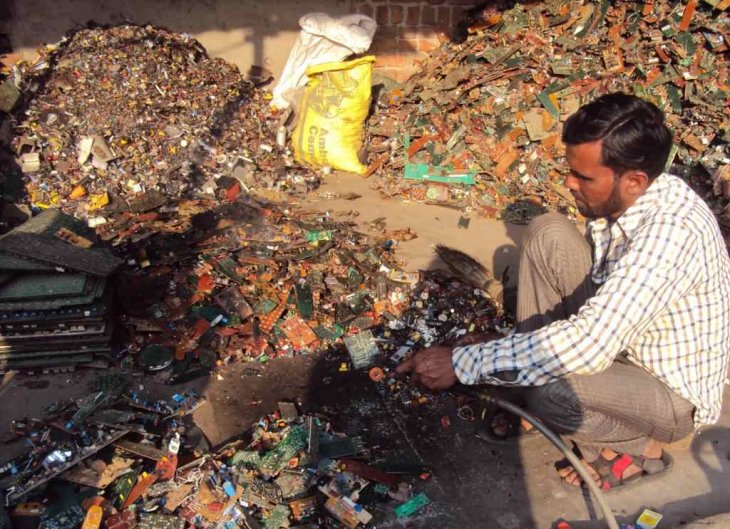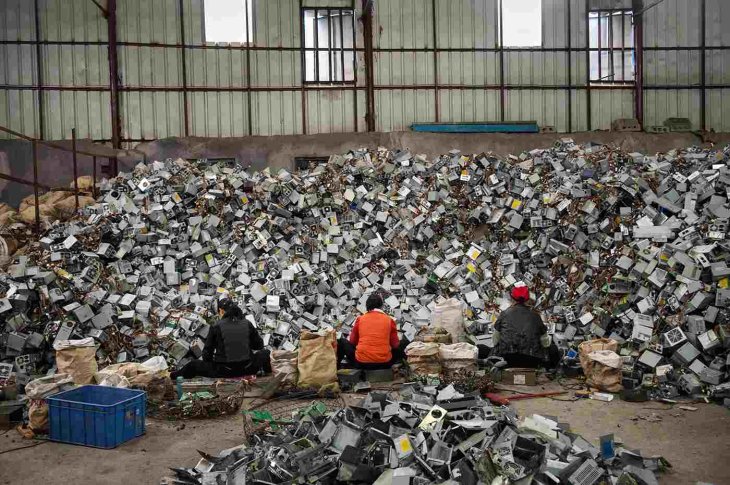India Is Implementing E-Waste Rules, But That Alone Cannot Solve The Recycling Problem
Shackcham Mirchandani - Jul 17, 2019

India lies in the top five of the global e-waste emission sources, with a large number of disposed electronic items and electrical equipment
- Delhi Is The World’s Most Polluted Capital City For Three Years In A Row
- Indian Farmers Install High-Tech, Night-Vision CCTV Cameras To Protect Themselves
- Looking For The Best Electric Bike In India 2021? Take A Look At These
The Narendra Modi government has recently banned the solid plastic import, showing their intention to crack down on the problem of e-waste, but that does not solve everything. India lies in the top five of the global discarded electronic appliance emission sources, given that it has a large number of disposed electronic items and electrical equipment along with its parts.
According to the Global E-Waste Monitor announced in 2017, India creates approximately 2 million tonnes (MT) or more of electronic waste every year and only ranks after Germany, Japan, China, and America. Nonetheless, India is different from other countries because it could only treat about 0.036 MT in 2016 and 2017.

A Hindustan recycler of electronic waste – Shekhar Sharma – said that this import ban creates a direction for producers. However, the ‘Recyclers’ CEO – Malay Bose – noted that some unethical organizations still found ways to import e-waste. They do that under cover of importing computing equipment. However, this practice has dramatically decreased.
However, India-made e-waste proves to be a bigger problem than those imported. The existing disposal facilities of e-waste lacks environmentally sound technologies, not to mention they do not have enough electronic waste to recycle. As Namo E-waste recyclers’ MD – Akshay Jain – explained, this happens because people were unaware of the danger of the inappropriate e-waste treating process, which is why they sold old electronics to unauthorized recyclers to make quick money. From his point of view, this problem requires government intervention.
About 90% of the e-waste is recycled in unofficial ways in India. Unauthorized recyclers extract valuable metals like aluminum, copper, and gold, but they get rid of toxic substances such as mercury and lead. This leads to a big problem since toxic waste keeps being discharged into nature. To stop the affair, Sharma suggests that the government mandates the EPR (Extended Producer Responsibility) system and make it compulsory.
This idea is agreed by Malay Bose. He said that the problem started because manufacturers are unaware of toxic substances like sulfur in devices. Those substances are hard to recycle, and they create pollution when being discharged as well. We all know that it’s modern time and that we should all have computers and phones. But at the end of the day, when they are out of fashion or too old to be used, it would require human beings to work in an unacceptable environment to entirely get rid of them. We’ll have to face the fact we are dealing with both the best and the worst end of technology.

But let’s not forget that India itself is having a distinct advantage. As Jain has explained, the country already has waste collectors as well as scavengers doing their jobs at the grassroots level. In the future, they need technology, the deployment of micro-factories of electronic waste and show people what should be done. Then, instead of manually burning e-waste, people can live and work in a safer environment with no emission of toxic waste at all.
According to this new E-Waste Rules 2016, it is compulsory that manufacturers, producers, and bulk consumers of electronic items and electrical devices to abide by the EPR.
As Sharma said, producers were made to get electronic waste from unauthorized sectors and recycle it. However, no benefits nor encouragements were provided to manufacturers even if they were following the right steps. And manufactures see the proper procedure of recycling e-waste as a cost that they don’t want to pay.
He explained:

Featured Stories

Features - Jan 29, 2026
Permanently Deleting Your Instagram Account: A Complete Step-by-Step Tutorial

Features - Jul 01, 2025
What Are The Fastest Passenger Vehicles Ever Created?

Features - Jun 25, 2025
Japan Hydrogen Breakthrough: Scientists Crack the Clean Energy Code with...

ICT News - Jun 25, 2025
AI Intimidation Tactics: CEOs Turn Flawed Technology Into Employee Fear Machine

Review - Jun 25, 2025
Windows 11 Problems: Is Microsoft's "Best" OS Actually Getting Worse?

Features - Jun 22, 2025
Telegram Founder Pavel Durov Plans to Split $14 Billion Fortune Among 106 Children

ICT News - Jun 22, 2025
Neuralink Telepathy Chip Enables Quadriplegic Rob Greiner to Control Games with...

Features - Jun 21, 2025
This Over $100 Bottle Has Nothing But Fresh Air Inside

Features - Jun 18, 2025
Best Mobile VPN Apps for Gaming 2025: Complete Guide

Features - Jun 18, 2025
A Math Formula Tells Us How Long Everything Will Live
Read more

Mobile- Feb 17, 2026
Anticipating the Samsung Galaxy S26 and S26+: Key Rumors and Specs
The Samsung Galaxy S26 series is on the horizon, sparking excitement among tech enthusiasts.

Mobile- Feb 16, 2026
Xiaomi Launches Affordable Tracker to Compete with Apple's AirTag
For users tired of ecosystem lock-in or high prices, the Xiaomi Tag represents a compelling, no-frills option that delivers core functionality at a fraction of the cost.

ICT News- Feb 18, 2026
Google's Project Toscana: Elevating Pixel Face Unlock to Rival Apple's Face ID
As the smartphone landscape evolves, Google's push toward superior face unlock technology underscores its ambition to close the gap with Apple in user security and convenience.
Comments
Sort by Newest | Popular